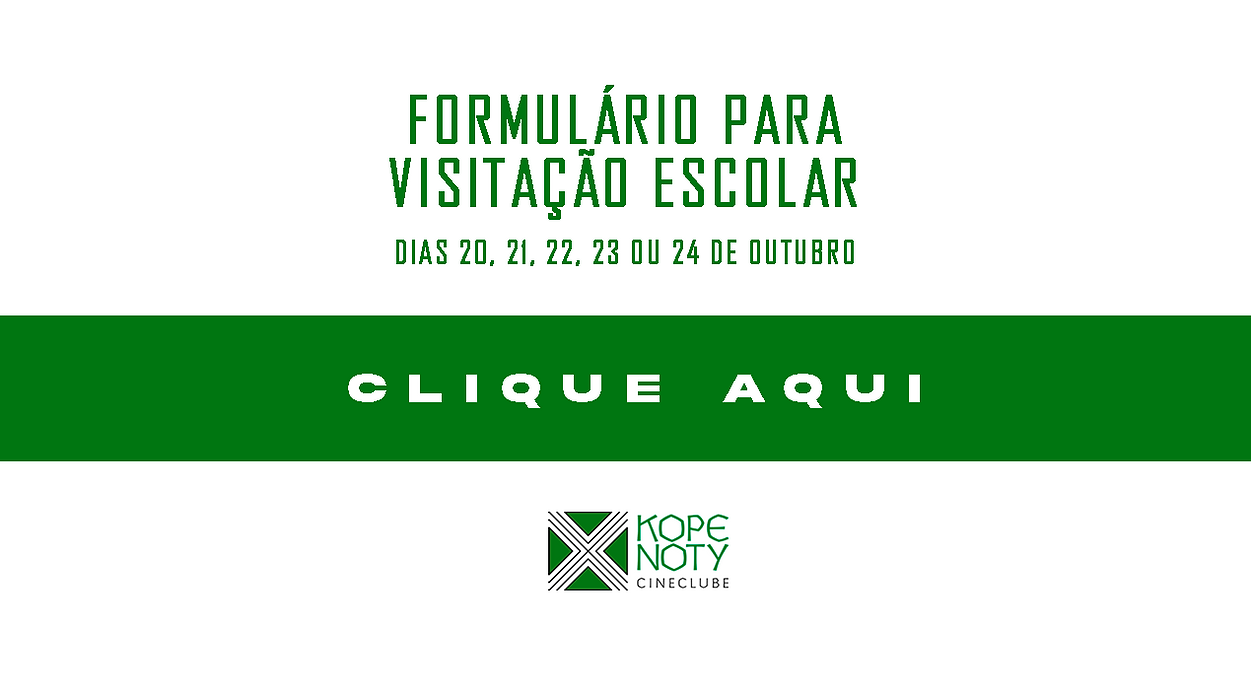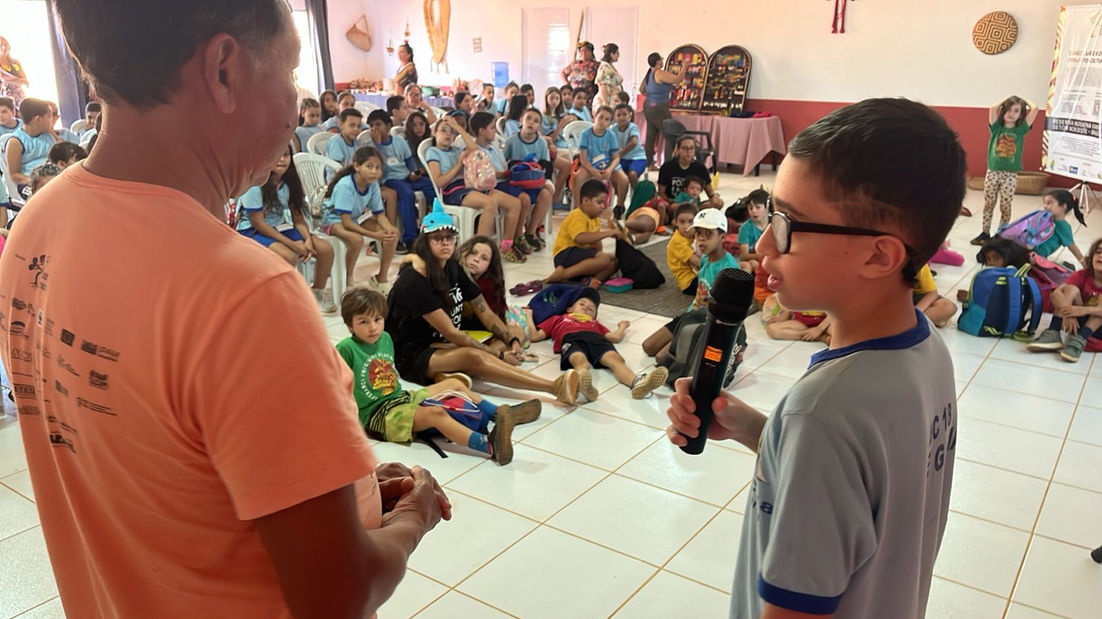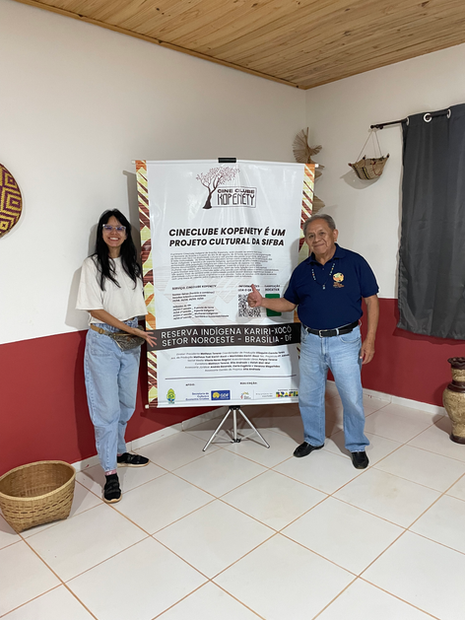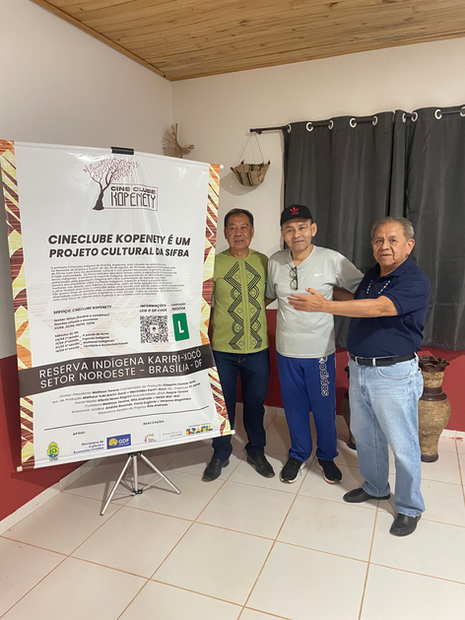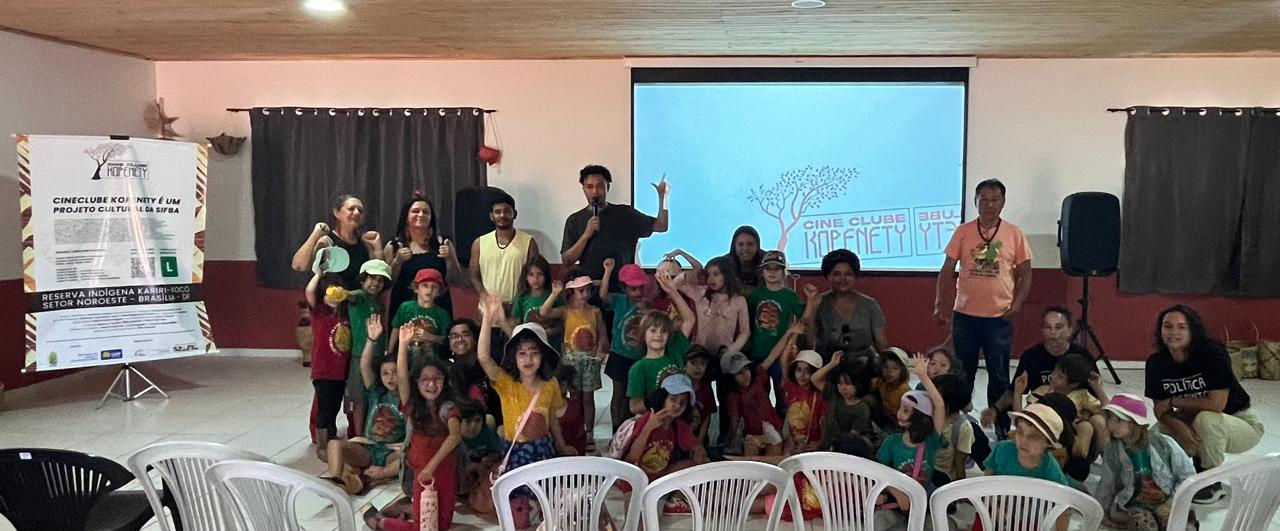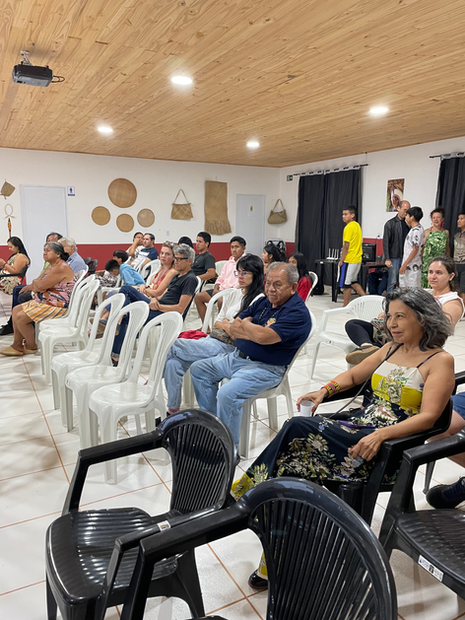
ABOUT US
The Kopenoty Film Club was created with the mission of providing a platform for expression and reflection on the lives and cultures of Indigenous peoples. Our team is comprised of members of the Indigenous community and film enthusiasts, all dedicated to promoting cultural diversity and strengthening Indigenous voices in cinema.

PHOTO : Vitor Santana
MISSION VISION OBJECTIVE VALUES
Mission : The Kopenoty Film Club, located in the Kariri Village in Brasília, aims to promote cultural diversity and raise awareness of indigenous peoples' issues. The space screens films that address topics such as the exploration and demarcation of indigenous lands, the difficulties and achievements of indigenous sports, documentaries about indigenous women and female unity in villages, as well as sustainability and spirituality.
Objective : The main goal of the Kopenoty Film Club is to promote Indigenous cultural diversity and discuss topics of great relevance to these communities, such as the struggle for land. Furthermore, the film club is dedicated to raising awareness of Indigenous plant cultivation through film, and to empowering indigenous communities.
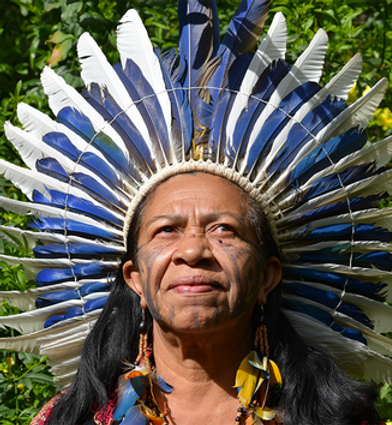
Vision : The Kopenoty Film Club is a space dedicated to film screenings and discussions, with a special focus on productions that often don't find a place in the commercial circuit. The film club's vision is to promote cultural and cinematic diversity by providing a platform for independent films, classics, and works by emerging filmmakers.
Cultural Diversity : We celebrate and promote the richness of indigenous cultures, valuing their unique stories, traditions and perspectives through cinema.
Inclusion : We create a welcoming and accessible space for all, where the voices of Indigenous peoples are heard and respected.
Sustainability : We are committed to sustainable practices that respect and preserve the environment, reflecting the harmonious relationship of indigenous peoples with nature.
Autonomy : We encourage autonomous filmmaking by First Nations communities, ensuring they have control over their own narratives.
Education : We promote awareness and education on Indigenous peoples' issues, using film as a powerful tool for learning and reflection.
Respect : We maintain a deep respect for the cultures and traditions of indigenous peoples, recognizing their importance and contributing to their preservation.
PHOTO : Maëlys Vézir
HISTORY OF THE TERRITORY
The Bananal Indigenous Peoples' Community emerged in the Federal District after the occupation of the Fulni-ô Indigenous Peoples, who moved to work on the construction of the capital in 1957. The region that is now the Federal District was inhabited by peoples such as the Jê, Xavante, Xerente, and Xacriabá. After the arrival of the Portuguese, the Central-West became a refuge for Indigenous people and Black people fleeing slavery. April 21, 1960, marked the inauguration of Brasília. In the 1970s, the Tuxá and Fulni-ó families established permanent residence there and began to form a multi-ethnic community. In 1986, the first Kariri Xocó families arrived at the Pajé Sanctuary. The fight for the regularization and demarcation of land in the Santuário dos Pajés had important milestones, such as the opening of a process with Funai in 1995, which ended up disappearing, and the creation of resistance movements, such as the "Movimento Santuário Não se Move!", in 2006. The area was the target of several conflicts involving Terracap (Brasília Real Estate Company), the Federal District Government and the communities of indigenous peoples.
Several anthropological accolades recognized the presence of Indigenous peoples in the Sanctuary, but resistance from authorities and real estate interests hindered official recognition of the land as Indigenous territory. In 2011, the Sanctuary suffered invasions and deforestation, leading to protests from Indigenous peoples, students, and environmentalists. The legal battle continued until, in 2013, the courts finally recognized the Sanctuary as a traditional Indigenous territory.

PHOTO : Vivian F.Scaggiante
Furthermore, the environmental impact of urban development, including deforestation and pollution of nearby areas, further exacerbates the situation, jeopardizing the preservation of the territory and natural resources essential to the community's survival. The disregard for the health and well-being of Indigenous peoples' families, evidenced by the destruction of sacred and medicinal spaces, reflects a lack of respect for their cultural traditions and way of life. Amid these challenges, the community remains hopeful that definitive demarcation will be achieved and that the Santuário dos Pajés will be respected as a traditional and sacred territory. The fight for land, however, goes beyond physical space: it is a fight to preserve the identity, culture, and spirituality of the indigenous peoples who remain steadfast in defending their rights. An agreement signed between Terracap (Brasília Real Estate Company) and the Kariri-Xocó and Tuxá indigenous peoples, signed in October 2014, provides for the relocation of these communities to a 14-hectare area near the Northwest Sector, outside the original territory of the Sanctuary of the Shamans. In exchange, the families of these ethnic groups agreed to the construction of housing units in the newly designated area, thus making room for real estate expansion in the Sector. This agreement was accepted by some of the Kariri-Xocó and Tuxá communities, who decided to leave the Sanctuary of the Shamans. However, other indigenous groups, such as the Fulni-ô Tapuya, Tuxá, and Tupinambá, refused to revise the agreement. They reaffirmed their intention to remain in their traditional territory, arguing that the Santuário dos Pajés is sacred land and that its demarcation should be officially recognized.


